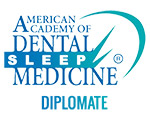 Brushing your teeth may be a habit that you take for granted. After all, most people begin to brush their own teeth around the age of 2 or 3 (with some adult backup), but what many of us don’t realize is we’ve never updated our tooth brushing techniques. Our teeth require different hygiene and care at different stages of our lives. One of the most essential elements of dental hygiene is proper tooth brushing, but if you’re still brushing the way mom or dad taught you as a child, you may not be cleaning your teeth effectively. Let the skilled staff at Donald Marks Family Dentistry help you make the most out of your daily tooth brushing routine. Call to schedule a dental hygiene appointment with our State Park, PA dental practice today.
Brushing your teeth may be a habit that you take for granted. After all, most people begin to brush their own teeth around the age of 2 or 3 (with some adult backup), but what many of us don’t realize is we’ve never updated our tooth brushing techniques. Our teeth require different hygiene and care at different stages of our lives. One of the most essential elements of dental hygiene is proper tooth brushing, but if you’re still brushing the way mom or dad taught you as a child, you may not be cleaning your teeth effectively. Let the skilled staff at Donald Marks Family Dentistry help you make the most out of your daily tooth brushing routine. Call to schedule a dental hygiene appointment with our State Park, PA dental practice today.
Tooth Brushing Recommendations from the Dentist State College, PA Trusts
When it comes to brushing, we recommend double checking the basics:
- Brush twice a day – brushing once in the morning and once before going to sleep is routine, and a 3rd brushing following your afternoon meal can be beneficial as well. However, all things should be done in moderation, and this includes tooth brushing. Done more than 3 times a day, brushing can damage gums.
- Check your brush – If you’re using a brush labeled “hard bristled,” one that is not American Dental Association approved, or one that is more than 3 or 4 months old, throw it out and get a new one. The ideal tooth brush should be soft or extra soft bristled to minimize damage to gums and maximize dental cleaning results. Always look for the ADA seal of approval when purchasing dental hygiene items as these have undergone more rigorous testing for effectiveness. Replace toothbrushes every 3 to 4 months to prevent contamination and maintain optimal brushing effectiveness. This includes mechanical tooth brushes. Make sure to purchase a mechanical brush that has replaceable heads.
- Check the clock – If you’re not brushing for at least two minutes, you are not thoroughly cleaning each tooth. Brushing longer than two minutes is even better. Many people gauge their brushing time using a timer, by brushing for the length of an entire song, or by brushing through a commercial break on television. Whatever trick you use, make sure to set aside at least 2 minutes every morning and evening to brush your teeth.
- Brush gently – Whether you apply a great deal of pressure while you brush or just a little, you are likely going to remove the same amount of plaque from your teeth and gums. Brush gently to avoid damaging soft tissue or causing gum recession. Holding your toothbrush with only 2 to 3 fingers like a pen, pencil, or paintbrush is a great way to build the habit of brushing with less pressure.
The Bass Method for Brushing
Many people are taught to brush their teeth as children using big circles or back and forth motions with the bristles flat against the outside and tops of teeth. Many children are never taught to brush the inside of their teeth at all. While these methods may be effective for children with poor hand eye coordination who are just developing the necessary motor skills to keep up their hygiene, there’s a reason we don’t brush our hair or wash our bodies the way we did when we were 3. Why would we continue to brush our teeth that way? For patients who want to start a more effective brushing routine, the Bass method is an option the team at Donald Marks Family Dentistry highly recommends.
How the Bass method works:
- Place your brush at a 45 degree angle to your teeth, against the gum line.
- Quickly move the toothbrush back and forth. The bristles should remain stationary while only your hand and the brush move.
- Count to ten, gently flick the bristles toward the biting surface of your tooth to shift plaque out from under gums, and proceed to the next tooth.
- Continue this process for each tooth inside and out.
- To clean the tops of teeth, place the brush flat on your biting surface and move back and forth keeping bristles stationary as you did with your other teeth.
- Count to ten and move to the next tooth. Continue until each tooth has been cleaned.
The Bass brushing method is preferred by many dentists and hygienists because it encourages increased periodontal care, and maximizes the effectiveness of each brush stroke. Ask your dental hygienist to explain or demonstrate effective brushing techniques for your, unique bite next time you visit our office.
Contact us for More Information
We’re always here to help, no matter what your dental care needs, but we’re dedicated to improved preventive care so our patients are more likely to retain their natural smiles for life. Call Donald Marks Family Dentistry to schedule an appointment today. Our State College, PA dental practice welcomes patients from neighboring communities Spring Mills, Centre Hall, Huntingdon, Altoona, Penns Valley, Boalsburg, Lemont, Bellefonte, Lewistown, and Phillipsburg.




